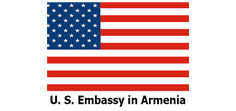After the revolution in 2018, Prime Minister Nikol Pashinyan made a number of statements on the settlement of the Karabakh conflict, offering his ideas for resolving the issue, mainly noting that he was starting the talks from “zero point.”
However, the substance of Pashinyan’s statements is very different depending on the period, the situation in the world and in Armenia.
Taking into account Pashinyan’s recent statements and the official position of official Yerevan on the final status of Nagorno Karabakh, the Fact Investigation Platform decided to provide an overview of Pashinyan’s statements on the status of Nagorno Karabakh and its right to self-determination and the changes in those statements.
2018-2019: Artsakh should be a party to negotiations: “It is Armenia and full stop“
The very next day after being elected Prime Minister, Nikol Pashinyan paid his first working visit to Artsakh on May 9, 2018. Here Pashinyan was quite specific when talking about Armenia’s demands from negotiations and readiness to compromise. “We can talk about compromises only when we receive a very clear message from Azerbaijan that Baku is ready to recognize the right of the people of Artsakh to self-determination.”
In the same period, again in one of his speeches in Nagorno Karabakh, Pashinyan was advancing one of the ideas he had expressed a number of times, that he has no right to negotiate on behalf of Nagorno Karabakh. “․․․We consider it very important to continue the negotiation process on the Karabakh issue, which will take into account the right of the people of Artsakh to self-determination, and I have stated that I am ready to negotiate with the President of Azerbaijan within the OSCE Minsk Group Co-Chairmanship. But I also think that this negotiation format cannot be considered complete unless one of the full parties to the conflict, the Artsakh leadership, participates in it.”
In March 2019, Pashinyan stated at a meeting with Bako Sahakyan in Stepanakert that the international recognition of the independence of the Republic of Artsakh was and will remain a “priority issue” for Armenia.
In August of the same year, the Prime Minister organized a rally in Stepanakert’s Renaissance Square. It was here that Pashinyan made one of his most remarkable statements: “Artsakh is Armenia, full stop.”
The statement was made in the context of the development programs of Armenia in the coming years, where there were no separate points about Nagorno Karabakh. “I am sure many of you are now asking why there is no mention of Artsakh. The answer is very simple, because Artsakh is Armenia, full stop,” Pashinyan stated.
“As a result of the negotiations, any solution considered acceptable for the governments of Armenia and Artsakh can be considered acceptable only in case of popular approval in Armenia and Artsakh,” the Prime Minister stated on the same day.
“Velvet Revolution must inevitably lead to international recognition of Artsakh’s self-determination”
In May 2020, Pashinyan participated in the inauguration ceremony of newly elected President Arayik Harutyunyan in Shushi, again referring to the right of Nagorno Karabakh to self-determination. “A non-violent, velvet, people’s revolution must inevitably and imperatively lead to the de jure international recognition of Artsakh’s de facto self-determination.”
“And consequently, my appeal and request: let us not use our national energy and strength in any way, on any platform, to deviate from this goal, to tire ourselves out, to wear ourselves out, to indulge in despair.”
It is noteworthy that although Pashinyan regularly spoke about the right of Nagorno Karabakh to self-determination in his statements to the domestic audience, his speeches on Nagorno Karabakh in international forums were more vague or bypassed the conflict in general, such as the one at the UN General Assembly in October 2019.
War: Remedial secession
The situation changed in late September 2020 after the war unleashed by Azerbaijan with the support of Turkey. Pashinyan began to push for a less-discussed principle of Karabakh conflict settlement – remedial secession.
The principle of “remedial secession”, which is one of the modern manifestations of the principle of peoples’ self-determination, entitles certain groups, peoples, to secede from any state when there is a risk of discrimination, widespread human rights violations or genocide. In the same way, it rules out union with a state if it will lead to the same consequences as above.
“Especially this should be the basis of our concept for the settlement of the Karabakh conflict and the involvement of mercenary terrorists in the current war. The terrorist practices of Turkey and Azerbaijan give a real opportunity to achieve such an international understanding,” Nikol Pashinyan wrote on his Facebook page on October 16.
Pashinyan spoke about the need to apply this principle in almost all interviews with the international media during the war. He stated that “remedial secession” is the only way to ensure the security of the Armenians of Artsakh, and “expected” that the international community would take steps to recognize Artsakh and record that “the Armenians of Nagorno Karabakh are facing an existential risk, a risk of genocide”, and in this context will consider the “remedial secession” formula applicable for Nagorno Karabakh”.
During this period, Pashinyan also spoke about one instance of “lowering the bar” on the status of Nagorno Karabakh by Armenia. Back in 2011, in Kazan, Armenia was ready to sign an agreement, according to which Nagorno Karabakh would receive “intermediate” status, leaving the final solution to an uncertain future. However, Azerbaijan refused at the last moment, putting forward more stringent demands. “As soon as any compromise becomes acceptable for Armenia, it immediately becomes unacceptable for Azerbaijan,” Pashinyan said in an interview with Al Arabiya.
Immediately after the end of the war, Pashinyan’s vision for the settlement of the Nagorno Karabakh issue remained the application of this principle.
“The decision of the French Senate is historic. The international recognition of Artsakh is on the international agenda,” Pashinyan wrote on his Facebook page, about a week after the signing of the ceasefire.
The applicability of the “remedial secession” principle in the context of the Karabakh conflict began to be discussed in Armenia after the 4-day April war in 2016.
This principle was publicly addressed by the first President Levon Ter-Petrosyan in his article “On the Recognition of Karabakh’s Independence” published on May 6, 2016, stating that “in order to succeed in the settlement process, in addition to pursuing the idea of self-determination referendum enshrined in the Madrid Principles, the Armenian diplomacy must also use another very important argument to justify the need for Karabakh’s independence. This refers to the so-called “remedial secession” doctrine, which has been actively developed in international law in recent decades.
Pre-election period: “Remedial secession“
Despite the new and unprecedented situation, in the post-war period and especially in the pre-election period ahead of the June 2021 parliamentary elections, Pashinyan continued to speak about the principle of Karabakh’s independence and “remedial secession”. During this period the negotiations with Azerbaijan had not resumed, the fate of the Minsk Group was also unknown.
Karabakh’s right to self-determination and “having no future within Azerbaijan” were also included in the pre-election program.
“Our main task in the coming years should be […] ensuring the security of the people of Artsakh and the peaceful and comprehensive settlement of the Karabakh conflict, based on the self-determination of the people of Artsakh without any restriction․․․ The fact that as a result of mass human rights violations and massacres all the territories of Artsakh where Azerbaijani control has been established have been left without the Armenian population, indicates that the people of Artsakh can not survive under Azerbaijani rule,” Nikol Pashinyan stated at the National Assembly in April 2021.
On June 17, in his final pre-election campaign speech, Pashinyan referred to this issue again. “Our vision for the settlement of the issue remains the same. We believe that as a result of the 44-day war the context of self-determination of the Armenians of Nagorno-Karabakh has intensified under the logic of “remedial secession”, because it is obvious that Armenophobia in Azerbaijan not only remains a state policy, but also is further emphasized by the newly inaugurated disgraceful trophy park. We must consistently focus the attention of the international community on these and similar facts, emphasizing that remedial secession is the only possibility for an objective and real settlement of the issue.”
The implementation of the principle of “remedial secession” was considered key for the settlement of the Karabakh conflict also in the pre-election program of Pashinyan’s Civil Contract Party.
The Fact Investigation Platform has already referred to the provisions about Artsakh in the pre-election program of the Civil Contract Party.
During the rally following the announcement of the results of the snap parliamentary elections on June 20, 2021, Pashinyan once again referred to this issue. “I want us to reiterate today with a round of applause that we are fully committed to our brothers and sisters in Artsakh, to our cherished dreams and to the just settlement of the Artsakh issue, within the framework of the remedial secession principle, as I had said in my previous speech,.”
“Era of peace” and “lowering the bar”
Shortly after the election, in August, while presenting the government program, Nikol Pashinyan announced that during the campaign, the Civil Contract had also given “verbal promises” to voters, which were not in the their election program. According to Pashinyan, the population “first of all remembers and records the promise of “opening an era of peace” in Armenia and the region together with the promise of establishing a “dictatorship of law” in the country.
Thus, in the past, the pre-election discussions on Karabakh’s right to self-determination and Karabakh in general fit into four points of the government program, one of which was formulated as follows: “The main objective of the government in the coming years should be to ensure the security of the people of Nagorno Karabakh and the peaceful and comprehensive settlement of the Karabakh conflict. The government sees a final settlement of the Nagorno-Karabakh conflict under the OSCE Minsk Group Co-Chairmanship by clarifying the final status of Nagorno-Karabakh on the basis of known principles and elements, including the right to self-determination.”
In December 2021, perhaps for the first time, Pashinyan addressed the issue of the “status of Karabakh” publicly and with a long speech: “The final status of Nagorno-Karabakh does not necessarily mean its independence.” Pashinyan also mentioned that this “status” was subject to clarification during the negotiations.
In his words, as a result of a certain propaganda in the Armenian society, an opinion has been formed that “the final status of Nagorno Karabakh” necessarily implies independence. “And who said that? “Final status means a certain final status.”
Pashinyan also regularly stated that he inherited the situation when “the status of Artsakh” was already off the negotiating table from the former authorities.
Gradually, the former popular statements started to disappear from Prime Minister Pashinyan’s speeches, and in recent months the rhetoric of Pashinyan and his political team has changed dramatically. References to the right of nations to self-determination or the need to apply the principle of “remedial secession” ceased.
Heated discussions on the future status of Nagorno Karabakh began especially in early April 2022 after the meeting with Aliyev in Brussels, where the parties agreed to prepare for the signing of a peace agreement.
Touching upon the substance of the peace agreement, Pashinyan noted in his speech on April 13 that “the guarantees of the security of the people of Nagorno Karabakh and the protection of their rights and freedoms, as well as the clarification of the final status of Nagorno Karabakh are of fundamental importance for them”.
Pashinyan made a rather open speech in the parliament that day, announcing that the international community demands “lowering” the “bar” of the status for Nagorno Karabakh. According to Pashinyan’s public speeches in recent years, this bar was the realization of the right of the people of Karabakh to self-determination or the recognition of independence.
According to him, the international community clearly states that non-recognition of “Turkey’s ally Azerbaijan’s territorial integrity” is not only a threat to Artsakh, but also to Armenia. “The international community says, lower your bar on the status of Nagorno-Karabakh a little, otherwise, they say, please do not rely on us.”
“We have stated that Armenia has never had territorial claims from Azerbaijan, and the Karabakh issue is not a matter of territory but of rights,” Pashinyan said. Now the “security guarantees and rights” of the Armenians of Artsakh are the basis, deriving the status from that․ “Status in this situation is not an end, but a means to ensure the security and rights of the Armenians of Nagorno Karabakh.”
The next day, April 14, Nikol Pashinyan again referred to these topics, clarifying his own statements. According to him, in the current situation, this is the only option for maintaining the security of the Karabakh Armenians.
Ani Avetisyan
Hakob Karapetyan

 FACTOMETER
FACTOMETER











